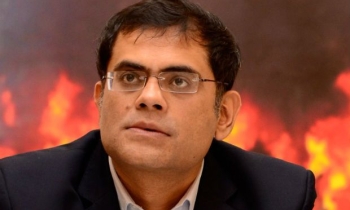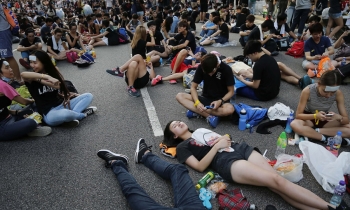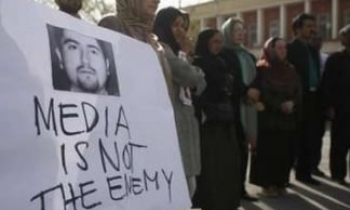The outward and visible pace of change seems suddenly frenetic. One minute the Guardian changes shape, the next the Sunday and Daily Telegraph begin testing new tabloid sections inside a broadsheet wrapper, the Independent on Sunday prepares to go the whole hog - and the Sunday Times carries on compacting its innards so that, as one very senior paper boy observes, you can't get it through any bloody letterbox he's ever come across. How long before a tabloid FT (for delivery with a tabloid Wall Street Journal) adds to his woes?
But all these shrinkings and fettlings, however exciting the newspaper business makes them seem, now have a touch of inevitability to them. You know, for instance, that the Daily Telegraph, the only all-purpose national broadsheet left, will go tabloid in the end - because that's the shape of advertising budgets to come. You also know that an editor who takes nearly three lugubrious months to choose himself a new deputy, then picks the fine, seasoned operator in the office next door, won't be too fast on his feet about it.
What nobody knows for certain, though, is how paper and ink and the wonders of the internet will fit together in the end. Which, in an increasingly insistent way, is a question that changing shape barely reaches. Yet it's there, time and again, rustling in the Fleet Street undergrowth. It is there in the revamped Guardian, not just when Alan Rusbridger talks about his 11 million online readers around the world, but when a deluge of emails rescues Doonesbury from the axe. It is there as letters to the editor arrive by both email and Royal Mail, as share price pages emerge diminished because the web does it better, faster. Online and newsprint are brothers now, umbilically linked.
That's not quite a new phenomenon. The Times spent much of its summer push advertising Times on- and off-line together. The Mail is starting to report an advertising drought turning some areas of the situations vacant columns into permanent digital desert. Mr Rupert Murdoch is calling crisis summits to ponder synergies he scoffed at five years ago.
In short, a moment of profound decision-making approaches. Some papers, like the Daily Express, make no great effort to move with the times. Some, like the Sun, cut back in anguish. Some, like the Guardian, have begun, at great cost, to build a future on the net.
But integration? One newsroom serves all? So far, these are problems awaiting solution. The Guardian, like the huge BBC online effort, has two substantial staffs doing one thing or the other, not both. Problems of integration initially solved by extra resources.
And that is much the same story around the world. Papers that are supposedly integrated - like the New York Times now - still have segregation on the editorial floor. Other, smaller operations mix digital, print, TV and broadcast in a bran tub that gives time for everything but finding original stories. Sometimes, perversely, as in areas of Canada, the law insists on keeping print and digital newsgathering for the same organisation miles apart.
None of this, though, can be the true future. None of it operates with maximum efficiency when news - instant, gripping news - grabs readers by their throats. Here's Jon Donley, who runs the New Orleans Times-Picayune's entertainment website, talking to the Online Journalism Review about what's happening in a desolate city where newspapers can't be printed or distributed.
'Reporters are seeing they can get their story in and have news [on the web] at the same time as the TV news. But this has thrown out all the rules. I don't think there's anybody at the paper who doesn't see us as a close ally. And I don't think we'll go back to the way things were because we've depended on each other too much. Now it's pretty clear, the advantages of doing it this way. I don't know what it will look like when we get back to normal, but I don't think normal life will be normal for a couple years'.
Correction, I think, in turn: there is no such thing as normal life (for journalists) left.









